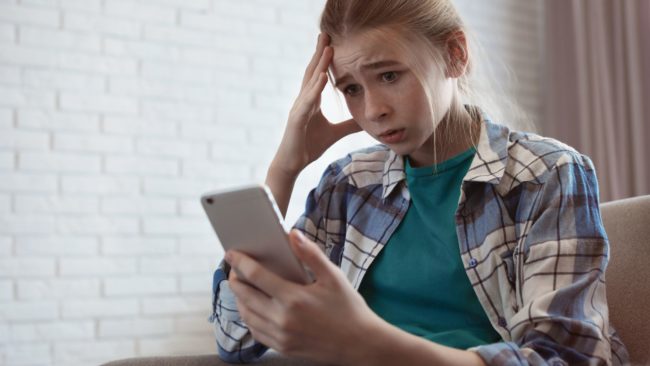
MPs are being pushed to consider a smartphones ban under 16s following a number of tragic deaths.
The mother of murdered teenager Brianna Ghey, who was killed by two 15 year olds, has asked for both Rishi Sunak and Keir Starmer to consider measures to stop children accessing inappropriate content. Brianna’s killers were found to have searched for information on how to kill someone online.
A number of teenage suicides in recent years have also been linked to social media use, including that of 14 year old Molly Russell in 2017.
Concerned parents are now campaigning for a ban to protect children from the negativity that owning a smartphone opens them up to.
The negative effects of smartphone use in children
The rise of smartphone use has correlated with a rapid decline in children’s mental health, and waiting lists for children’s mental health services are at an all-time high.
King’s College found that a quarter of young people show signs of an unhealthy addiction to their phones, and a consistent link between smartphone use and poor mental health.
Bullying is another issue that is exacerbated by social media and phone use- an Office for National Statistics study found that 1 in 5 children had been bullied online.
Self-esteem is also found to be heavily impacted by social media use, as shown in another study’s findings.
Those suffering from poor mental health can also suffer negatively from looking to connect to others who feel similarly online- the suicide of Molly Russell was linked to her use of Instagram. ‘I have no doubt that Instagram helped to kill my daughter,’ said her father Ian. Images of self-harm and suicide discussion can be easily found on social media, and algorithms will offer more content based on previous searches.
Florida may become the first US state to ban smartphones for the under 16s, with a majority voting to advance the bill to senate. If the bill passes then other US states and international countries may follow suit.
How can I protect my child from harmful content?
There are a number of steps you can take to help protect your child from being negatively affected by smartphone use. Here are some top tips:
Limit screen time
The less time spent online, the less risk. Aim to implement a rule of a limited amount of time spent online a day- perhaps 1 hour maximum.
Ban apps
Even when teenagers reach the ‘appropriate age’ set out by apps such as Whatsapp or Snapchat, exercise discretion. You will only have so much control over what your child sees online, so if in doubt, don’t allow it.
No phones in the bedroom
Promote a healthy distance from social media and messaging by implementing a family no- phones-in-the-bedroom rule. By leaving phones downstairs overnight, parents can limit what children are exposed to. Plus, it encourages young people to indulge in healthier activities instead of reaching for their phone.
Set up parental controls
Apps like Google Family Link allow you to monitor your child’s usage and approve or block apps.
Help your child learn about positive phone use
The BBC have created a helpful app called Own It, which helps your child use the internet positively. The Own It website also holds a wealth of information pitched to youths, including this helpful guide on what to do if you see something scary online. We also like this video on what photo editing means for self-esteem.
Have meaningful discussions
Aim to discuss critically what children are exposed to online- this helps them develop a rational mindset about what is being presented to them.
Some helpful topics to discuss could be:
- whether Instagram and TikTok content shows real life or merely curated snapshots
- the use of image altering
- whether aiming to get ‘likes’ is positive or negative
- how using social media makes us feel
- what is kind versus unkind behaviour online
- the positives and negatives of social media use.
Try to start these conversations organically, perhaps when watching a tv show together which sparks a natural conversation.
Encourage positive activities outside of social media
Try to nurture your child’s interests by getting them involved in local clubs and activities- it helps to counterweight your child’s online life and encourages friendships. Look into sporting groups, music lessons or anything that your child might enjoy.
Family time spent together is also an important activity, boosting bonds and connection. Aim to leave phones away from the dinner table and make dinner time a family event. Research shows that eating dinner together with no distractions improves happiness for everyone in the family.
Be sure to also spend 1-1 time with your child most days- even 15 minutes chatting together counts.








